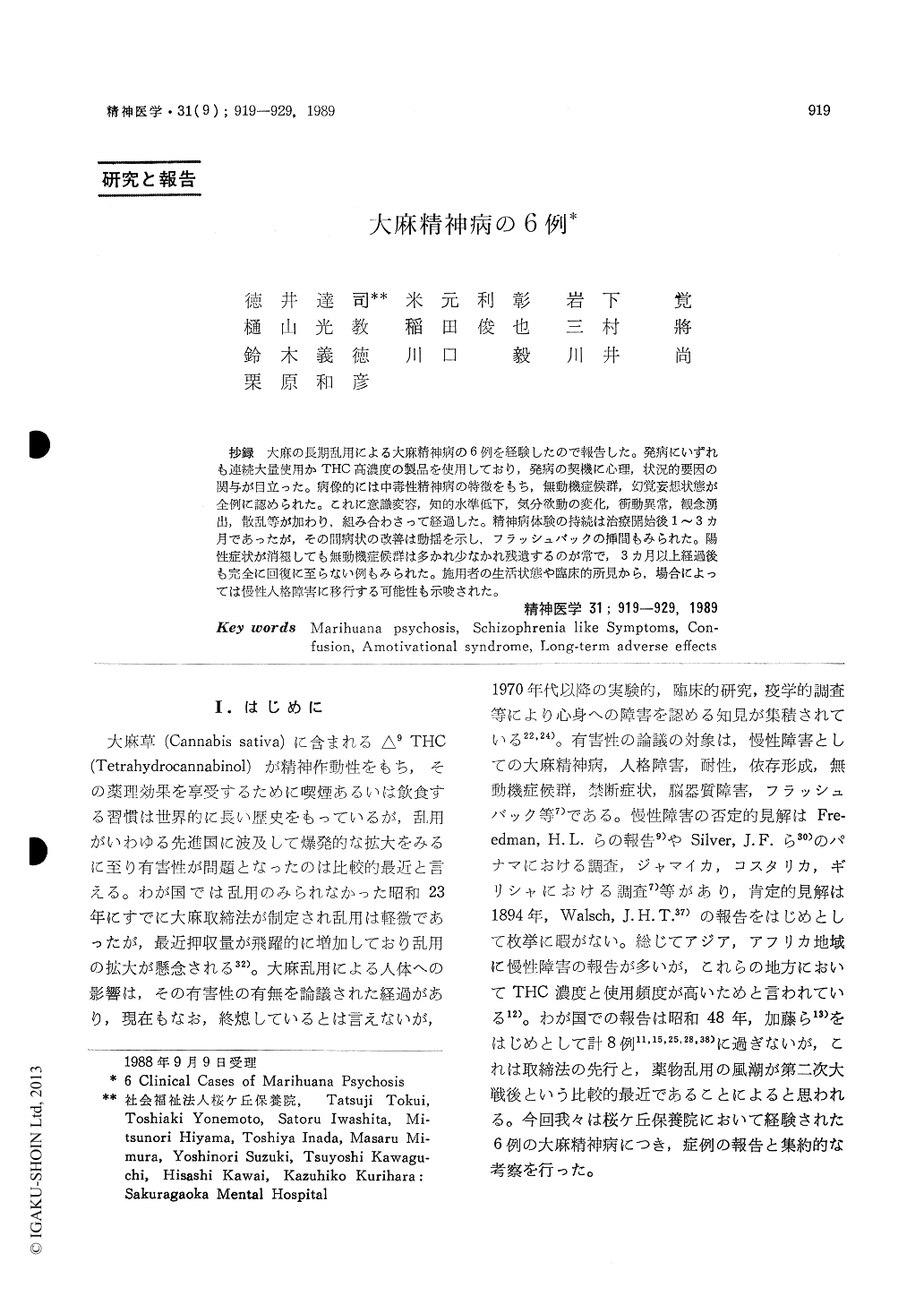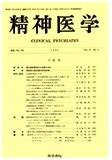Japanese
English
- 有料閲覧
- Abstract 文献概要
- 1ページ目 Look Inside
- サイト内被引用 Cited by
抄録 大麻の長期乱用による大麻精神病の6例を経験したので報告した。発病にいずれも連続大量使用かTHC高濃度の製品を使用しており,発病の契機に心理,状況的要因の関与が目立った。病像的には中毒性精神病の特徴をもち,無動機症候群,幻覚妄想状態が全例に認められた。これに意識変容,知的水準低下,気分欲動の変化,衝動異常,観念湧出,散乱等が加わり,組み合わさって経過した。精神病体験の持続は治療開始後1〜3カ月であったが,その間病状の改善は動揺を示し,フラッシュバックの挿間もみられた。陽性症状が消褪しても無動機症候群は多かれ少なかれ残遺するのが常で,3カ月以上経過後も完全に回復に至らない例もみられた。施用者の生活状態や臨床的所見から,場合によっては慢性人格障害に移行する可能性も示唆された。
Our report is concerned with 6 cases of Marihuana psychosis due to long-term Marihuana use.
The onset of psychosis in all cases was associated with massive abuse of Marihuana or high cconcentration of THC in the blood.
It was obvious that the outbreak of psychosis was associated with the psychological factors underlying the lifestyles of the subjects. Their clinical pictures were characterized by toxic psychosis, and, in all cases, amotivational syndrome and hallucinatory paranoid state were recognized.
In addition to these syndromes, the histories of the subjects showed combinations of pathological states such as change of mood and drive instinct, impulsive action and flight, and lack of concentration, etc.
The psychosis continued for 1~3 months from the initiation of therapy. However, fluctuation or even flash-back, occurred during improvement of these syndromes.
Though positive syndrome subsided, amotivational syndrome was remained constantly, and, in some cases, it never disappeared completely.
Our results suggested the possibility that progressional psychosis transferred into chronic personality disorder in some environmental and clinical circumstances.

Copyright © 1989, Igaku-Shoin Ltd. All rights reserved.


